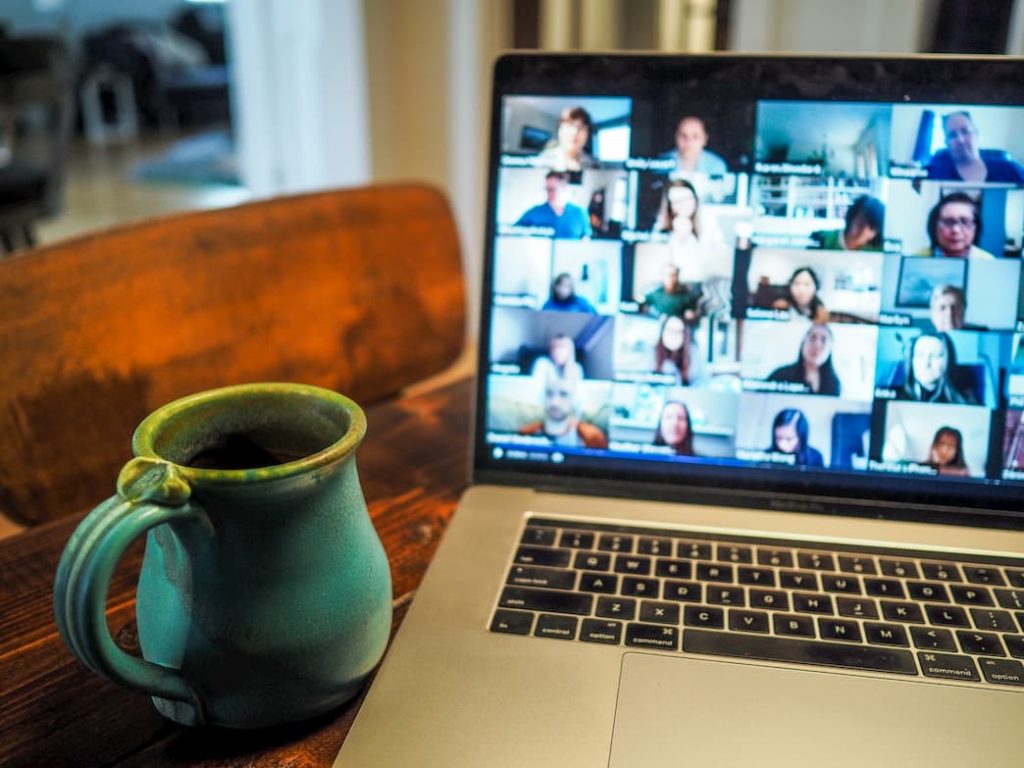A shift to remote learning in schools and universities began as a novelty, with the comfort of tracksuit bottoms and duvet covers calling. This novelty has long since worn off, with increasing difficulty in remaining motivated and determined. Zoom fatigue is now a major factor for students and can have a massive impact on learning ability. We’ve put together some tips on how to prevent zoom fatigue when studying at home.
What is Zoom Fatigue?

Zoom fatigue is a relatively new phenomenon that relates to the feeling of burnout and exhaustion that you may feel due to an increased participation in video calls. Although it is named after the Zoom app, zoom fatigue relates to any platform that makes use of video calls, such as Google Hangouts, Microsoft Teams and even Facebook Messenger. Whether you are using these platforms to keep up to date with class, work or friends, it is important that you understand why we experience zoom fatigue in the first place.
So, Why Do I Feel Tired After Zoom Calls?

1. Our Brains Are Working Harder
When we are on a video call, our brains have to work harder in order to retain information. This is because we have to fill in the gaps left from body language and tone that would usually be provided in person. These circumstances, paired with freezing visuals and lagging audio, means that our brains have to connect more dots than would usually be required in a normal setting.
2. Pressure To Remain Switched On
In video calls, we always have to be switched on. We feel like we have to be constantly engaged and be seen to be engaged throughout the entirety of the video call. Whereas, in person, we would be able to look around the room, outside a window, or at our notes, without any fear of critique. The constant image of our own face being projected back to us also makes us hyper-aware of our actions. It may lead to performative feelings of interaction, when in reality we are thinking if it’s still too early to turn our heating on.
3. No More Breaks
Another aspect that we are missing out on is our ritual. Before remote learning we were able to break up our classes and subjects with short walks to different environments, possibly even bumping into a friend whilst walking through campus. Although in person, these motions may not seem important, it is something that remote learning does not have. Students are too often finishing one video call, only to hop immediately on to another one, trying to tackle several different topics whilst remaining at the same desk all day.
These are a few reasons as to why you may experience Zoom fatigue. It is still being researched today, and its lasting impacts unknown. If you would like to know more about zoom fatigue, follow the link here.
How Can I Prevent Zoom Fatigue?

At this point you may be thinking that exhaustion and stress is inevitable with online learning. But there are several things you can do to prevent zoom fatigue when studying at home, whilst you wait for teaching to go back to normal.
On Screen
Since the change to remote learning, you may have become an expert in the art of multi-tasking. Desperately trying to appear interested in your class, whilst buying your outfit of choice once you can finally meet up with your friends again. Unfortunately, this is not helpful for you. Change your video call to full screen so there are no on-screen distractions that you could become lost in. Another tip would be to hide yourself from self-view, so you can stop worrying if it’s obvious that you just rolled out of bed five minutes ago. This will once again redirect your attention to the class itself and make it easier for your brain to focus.
Organisation
It is important to consider why you are using a video call to interact with a group or individual, rather than another method. Although, for some students there may be no possibility of moving away from video calls, it is a key skill that is useful in the future. Taking a step back and reviewing the best method of communication is vital, rather than suggesting a video call consider if you could use a phone call instead, or possibly resolve a query over email. Furthermore, the video calls that you do organise could be reserved for one day a week or you could have one day a week free from video calls.
Off Screen
Our lives have become submerged in technology in the last year, whether we wanted them to or not. It can become a cycle of moving from a small screen…to a medium screen…to a large screen…and then back to a small screen before sleep. Keeping this in mind, we now have to actively make time to step away from blue light. Setting aside an hour or so every day to move your body, read a book, or even do some colouring can prove very beneficial when you get back to your desk.
It’s also worthwhile to make your desk and the surrounding environment comfortable and welcoming. As a student, you now have to face hours every day sitting in the same spot, you may as well make it as functional and supportive as possible. This may include keeping water by your desk to stay hydrated or turning your workspace so you can enjoy some natural light.
